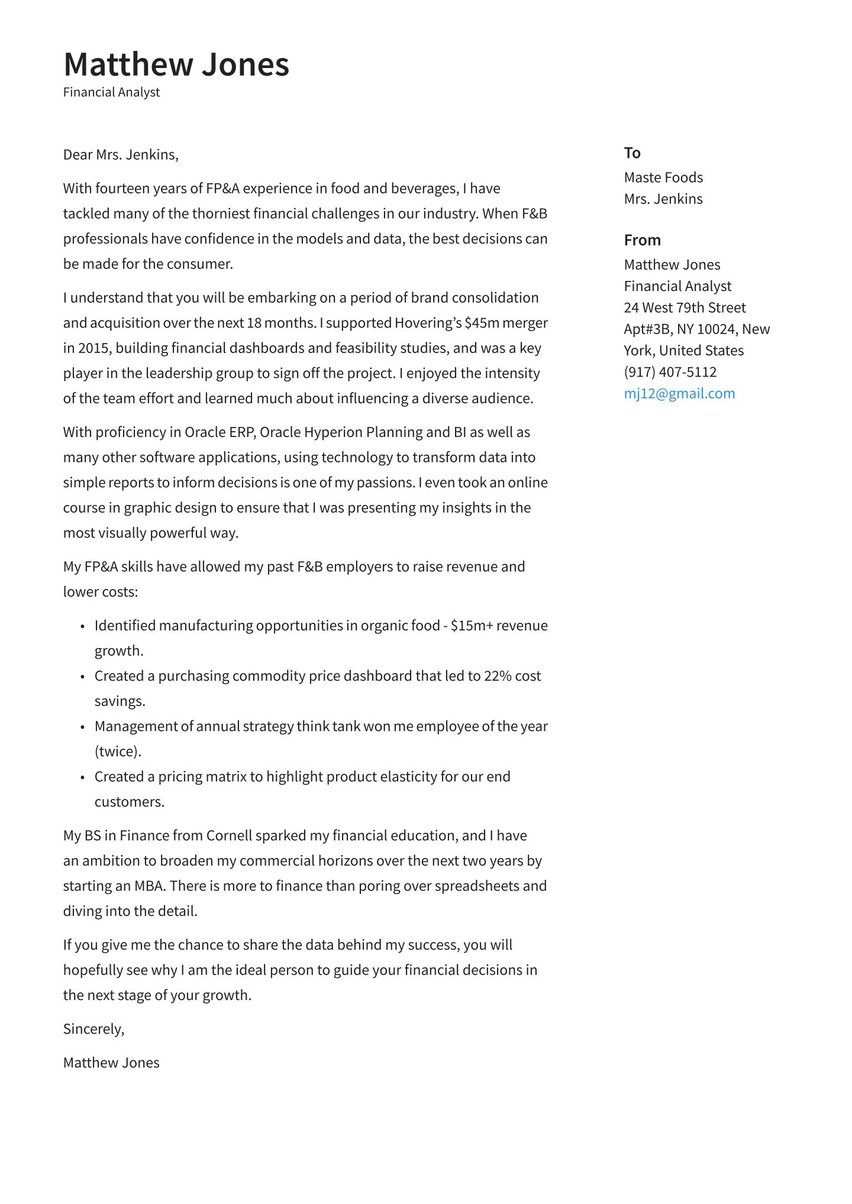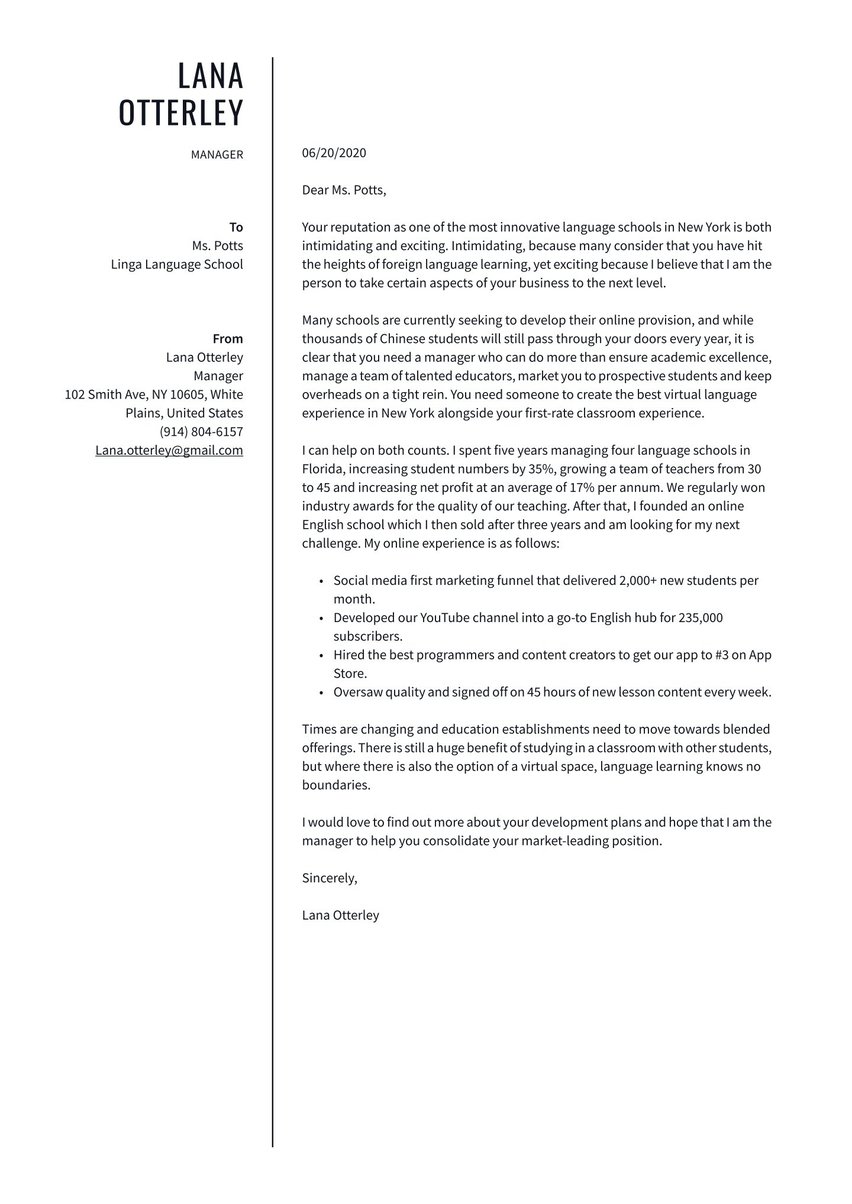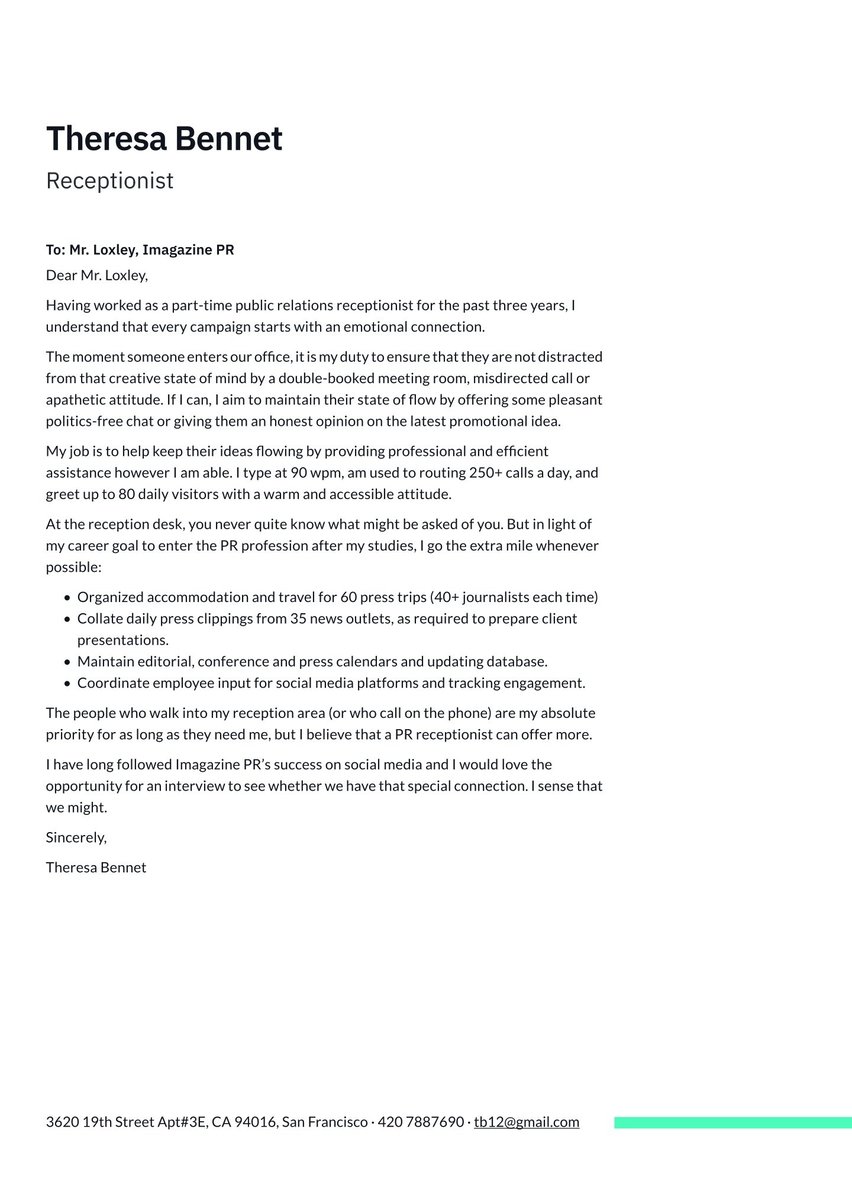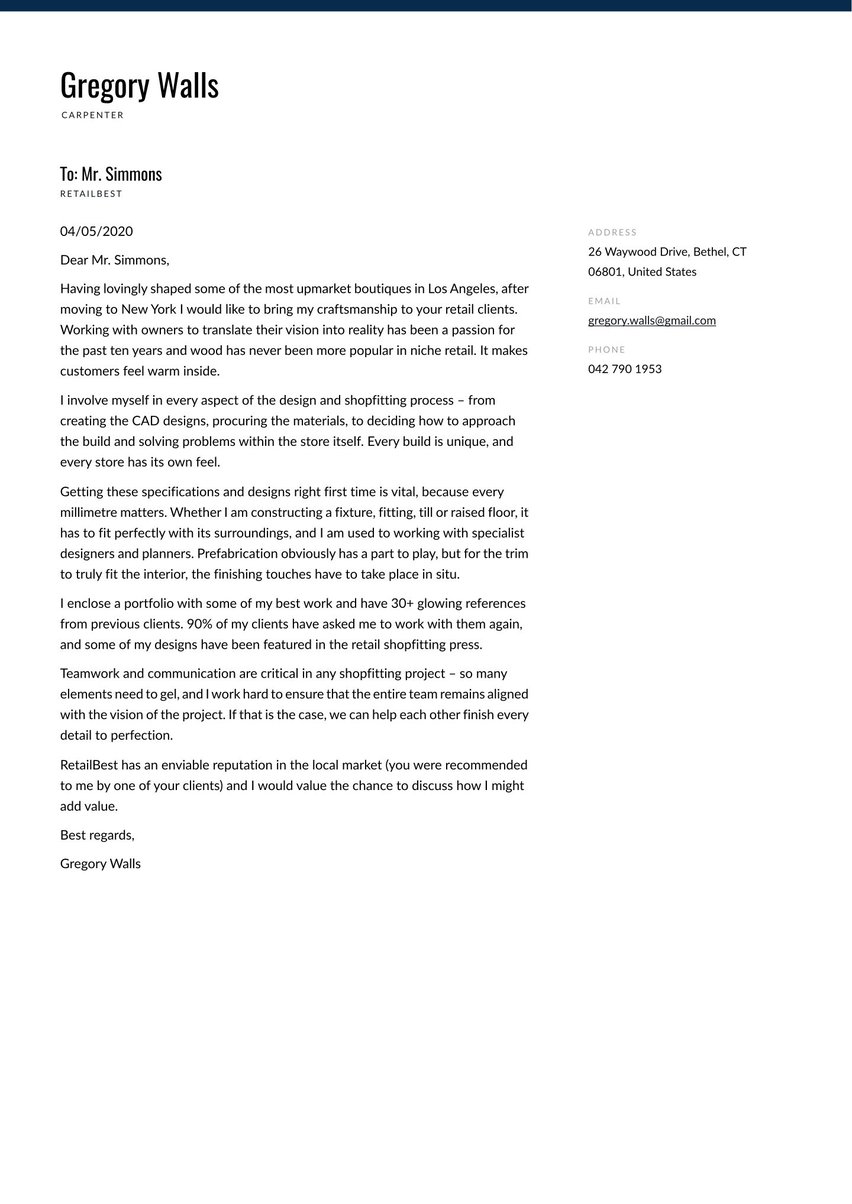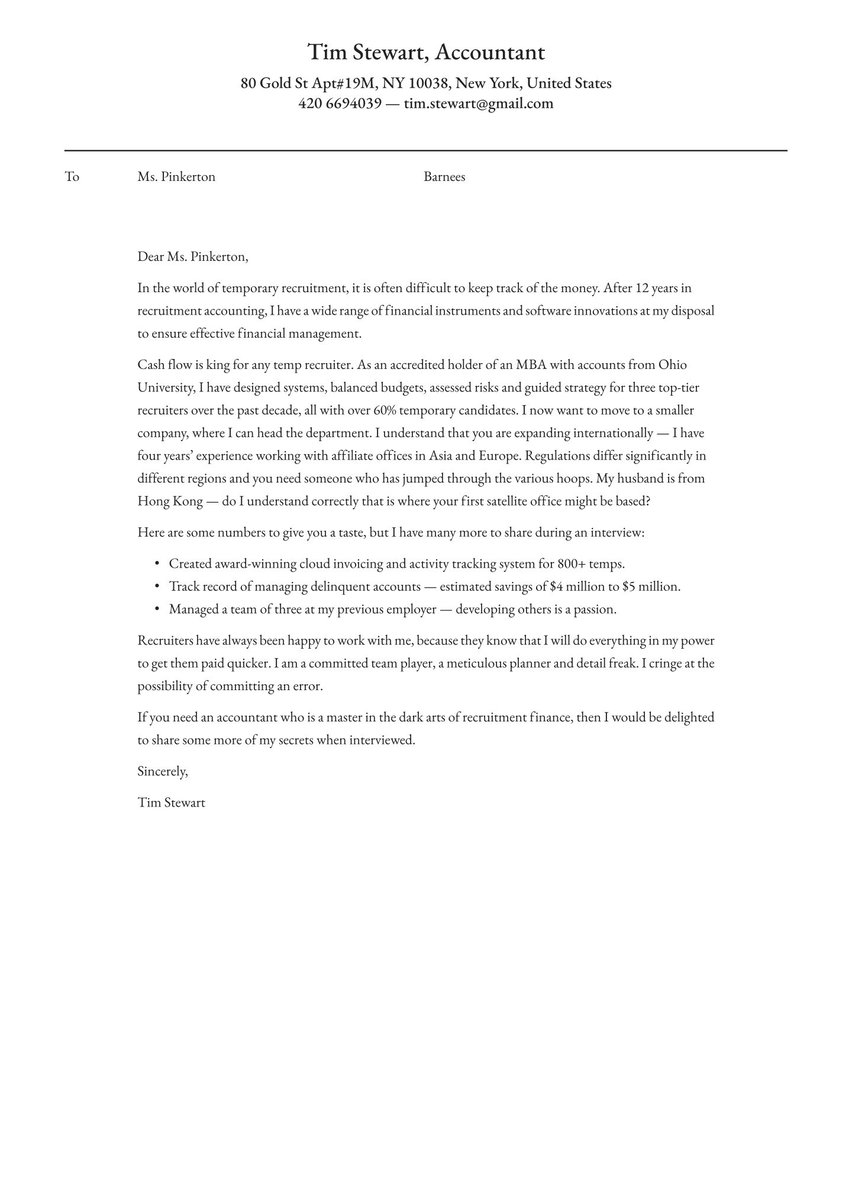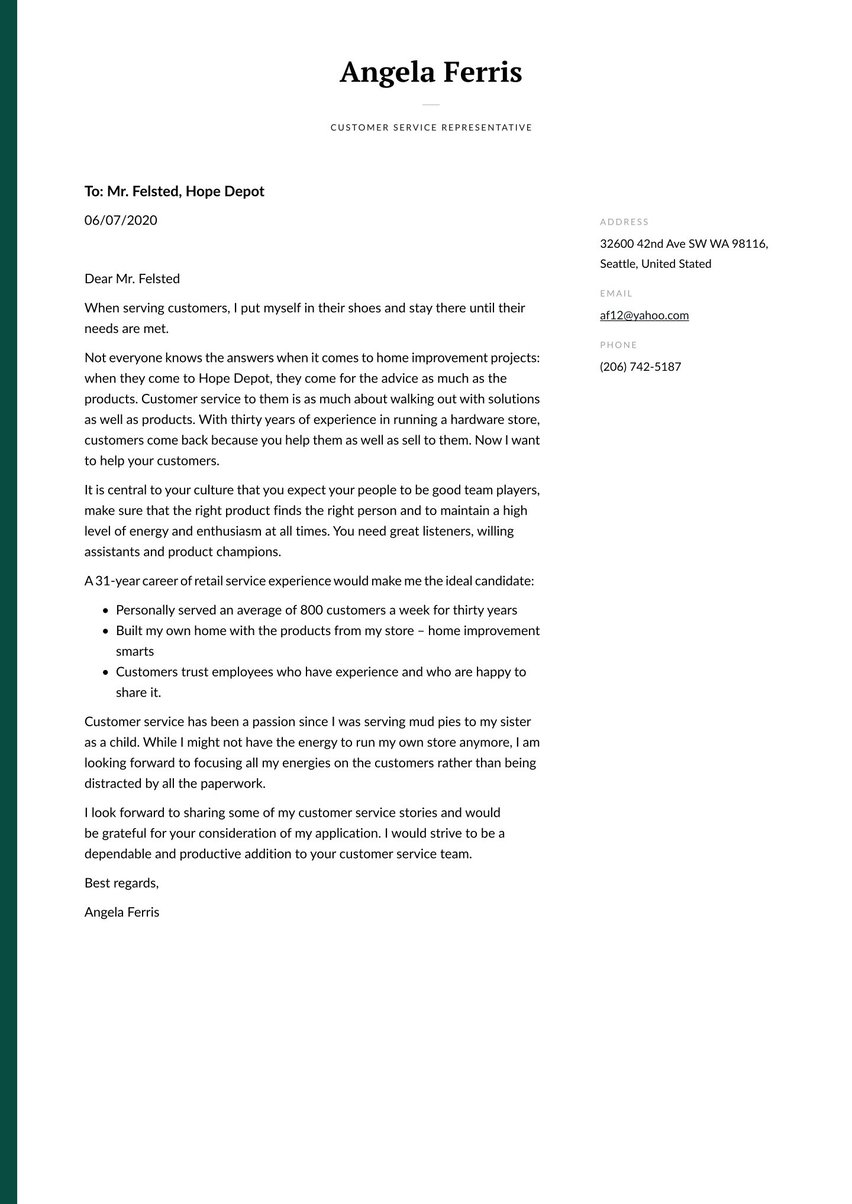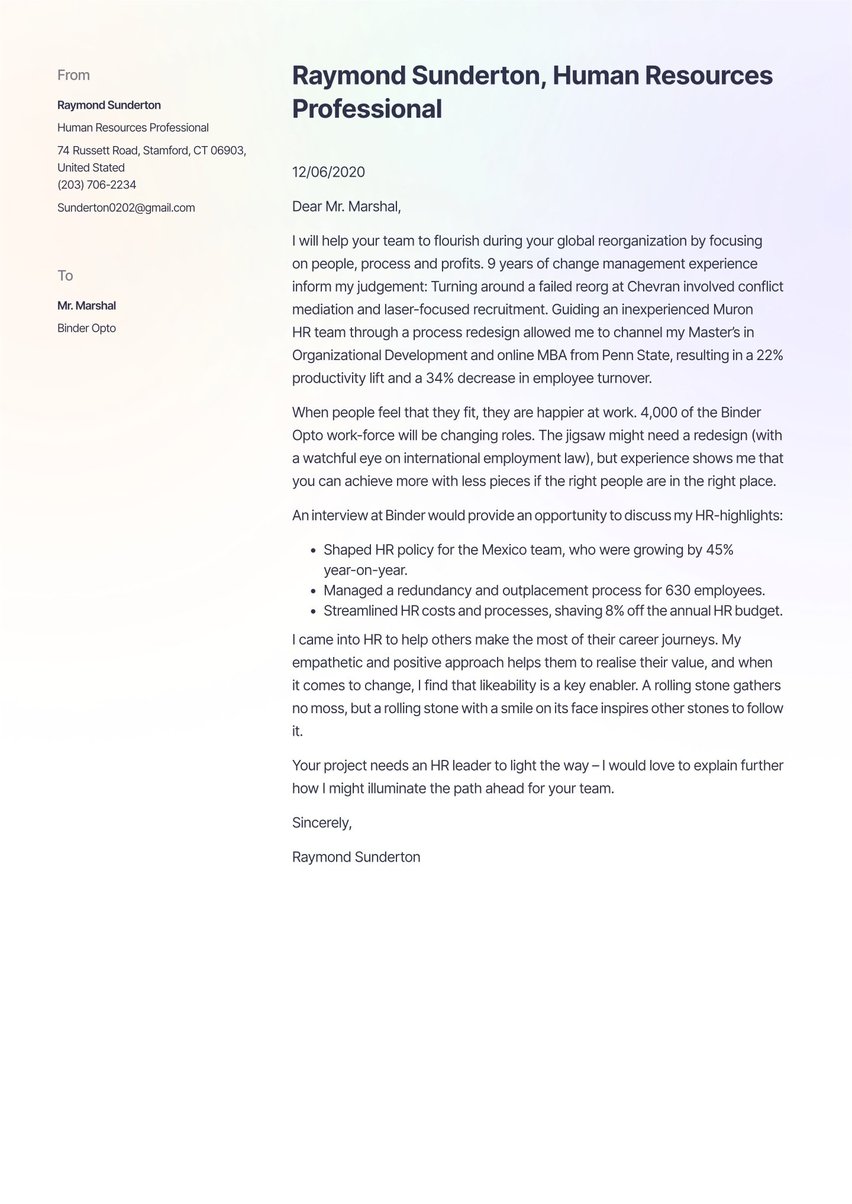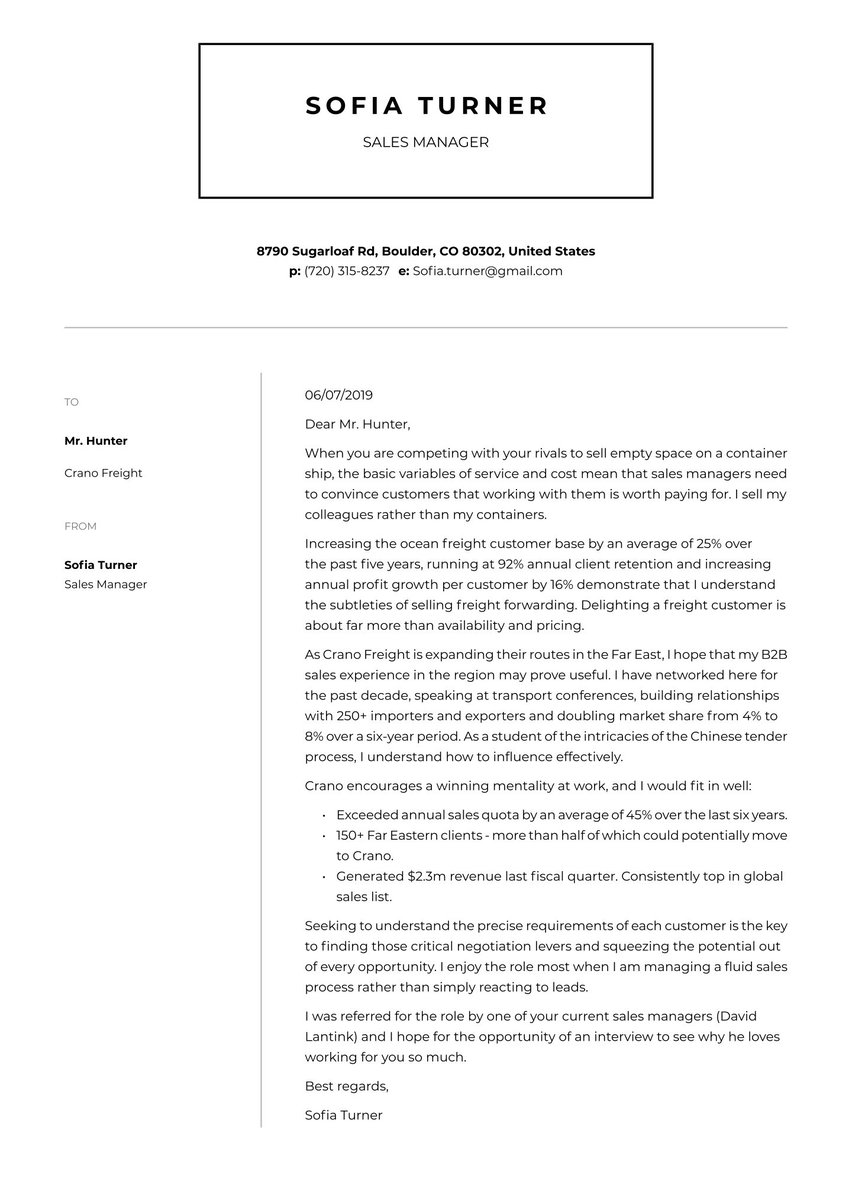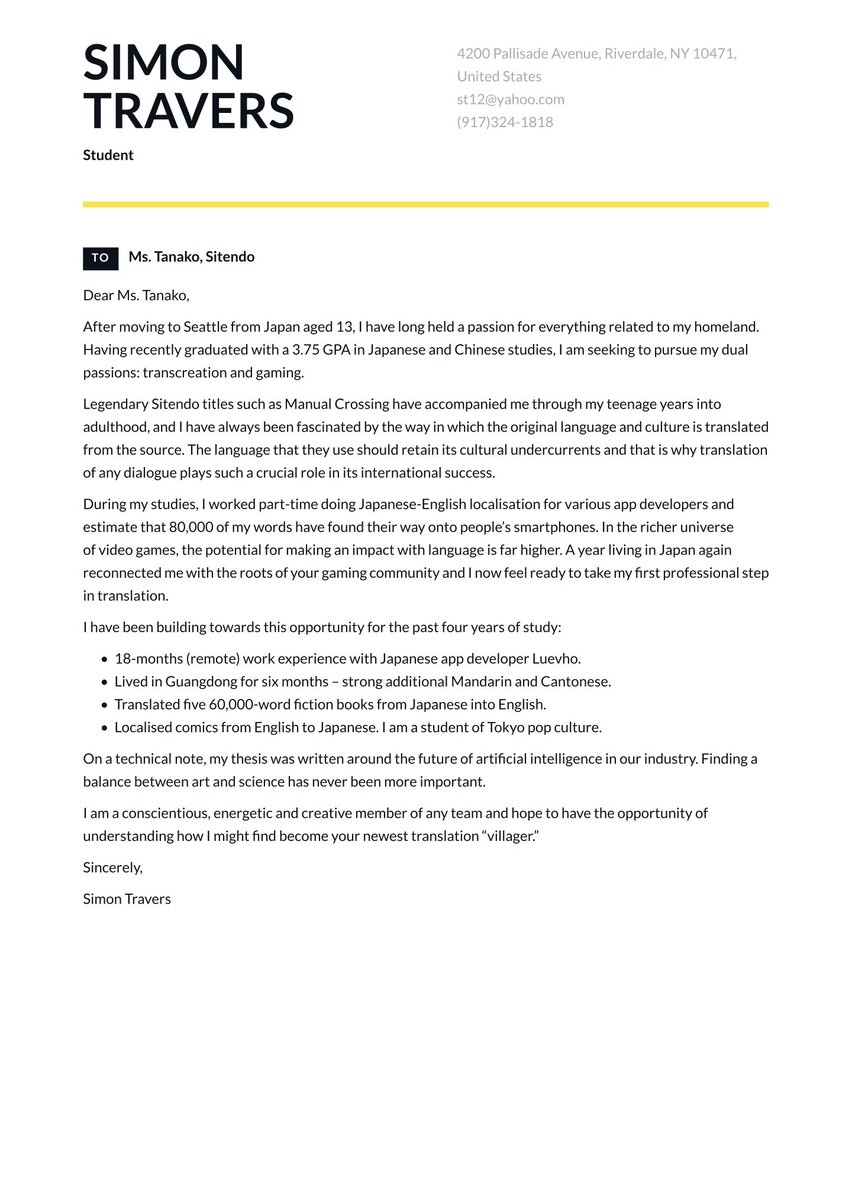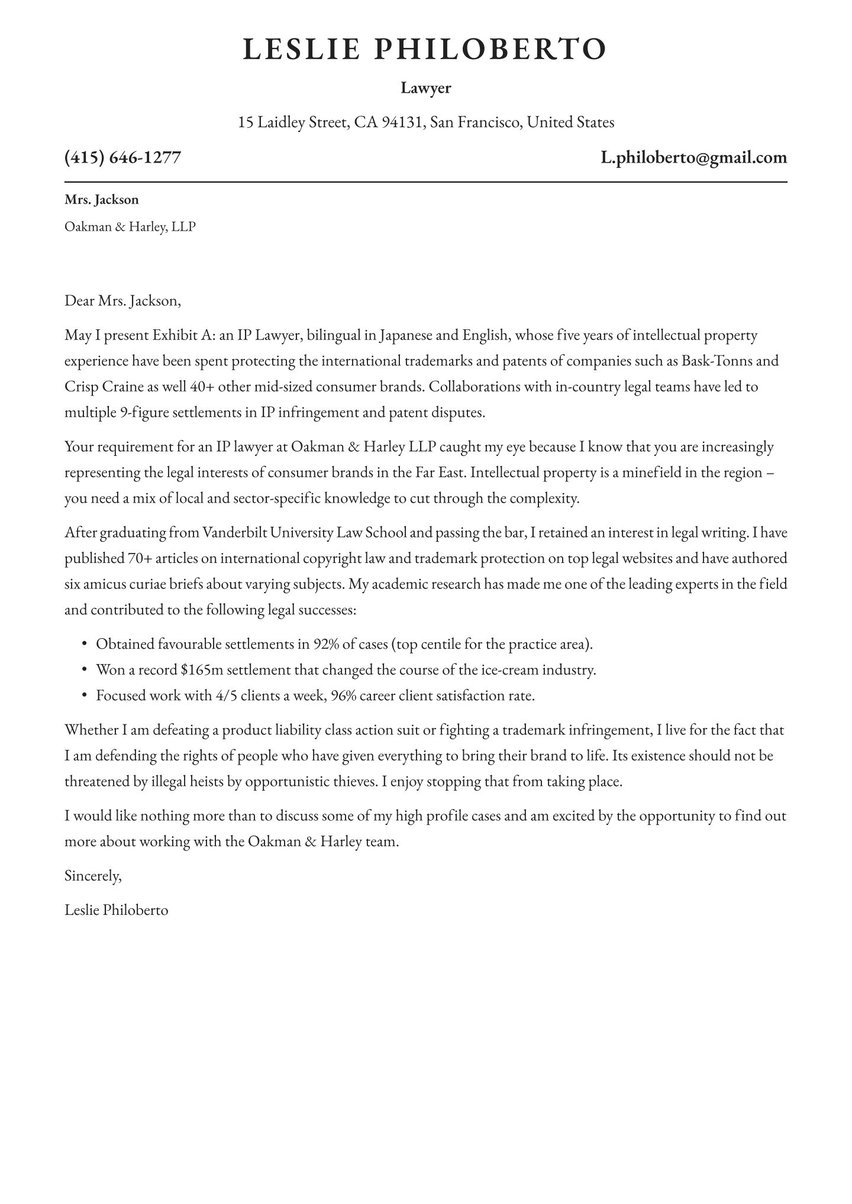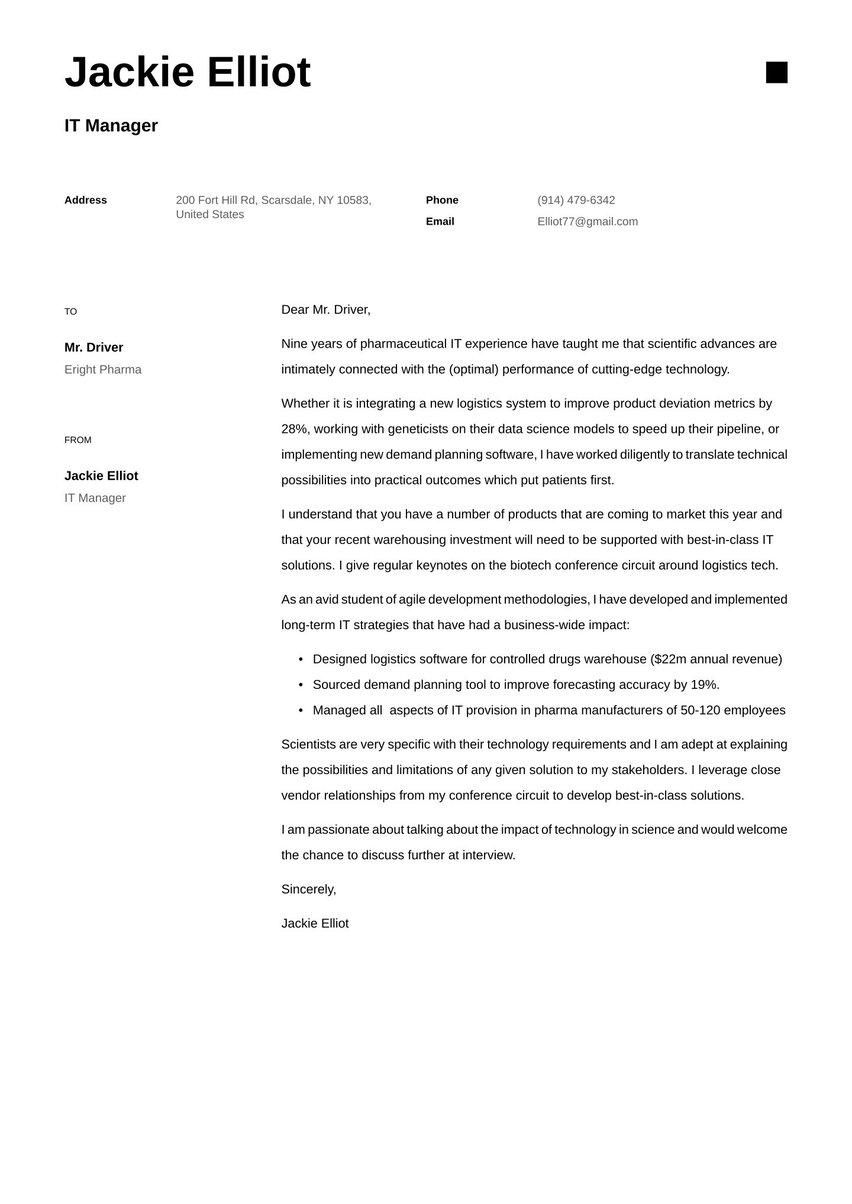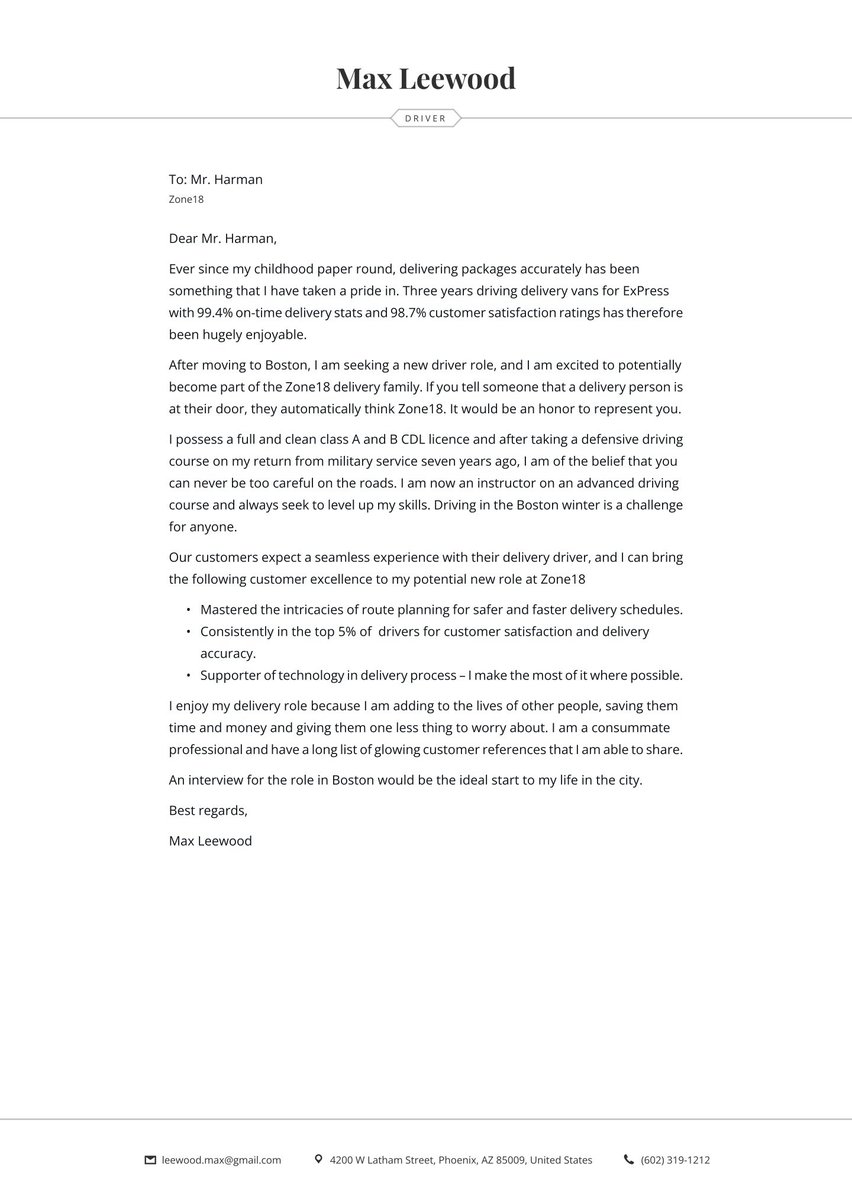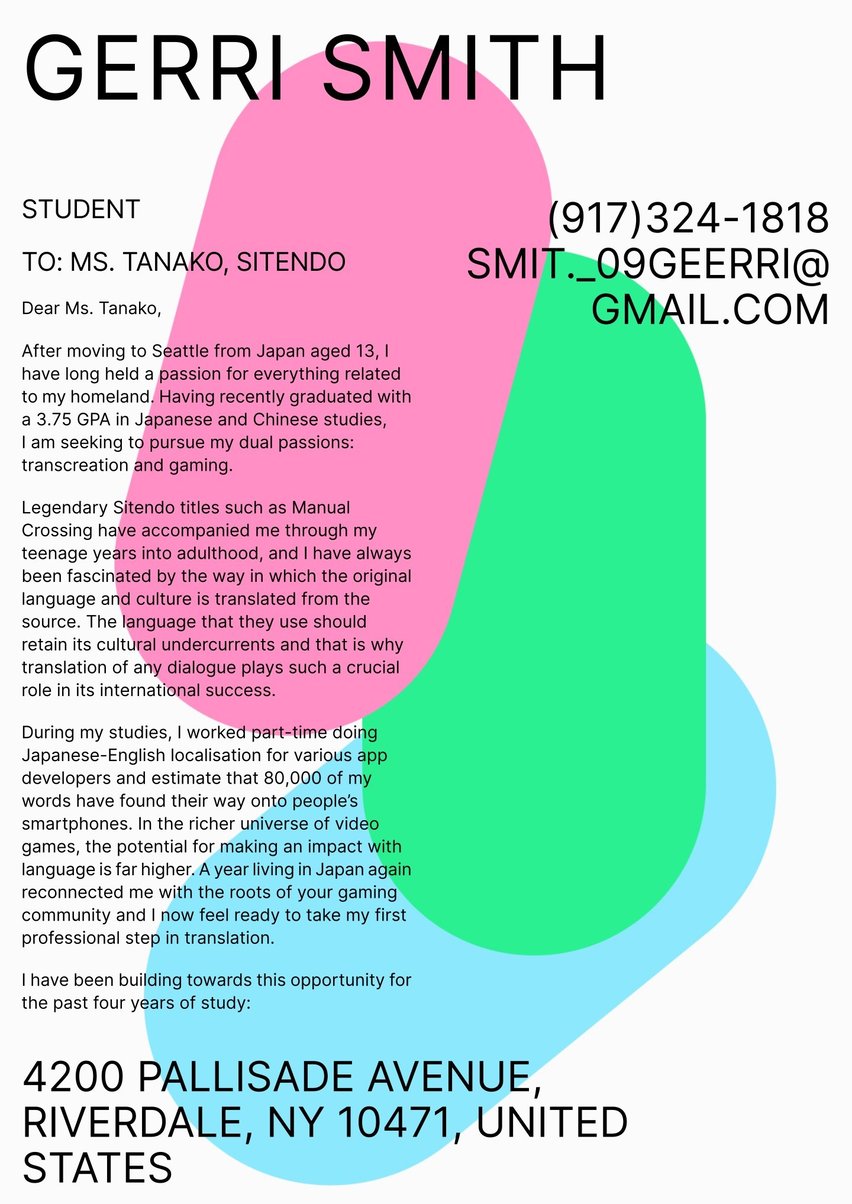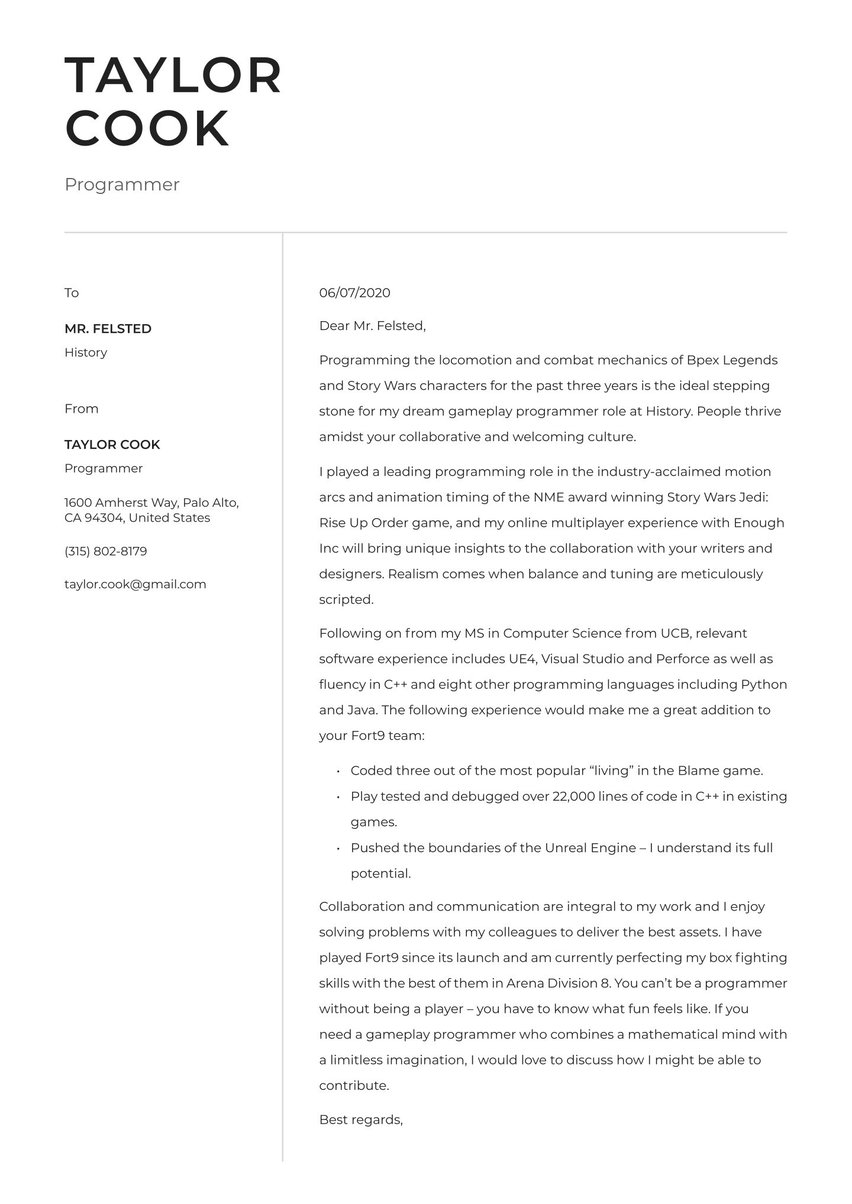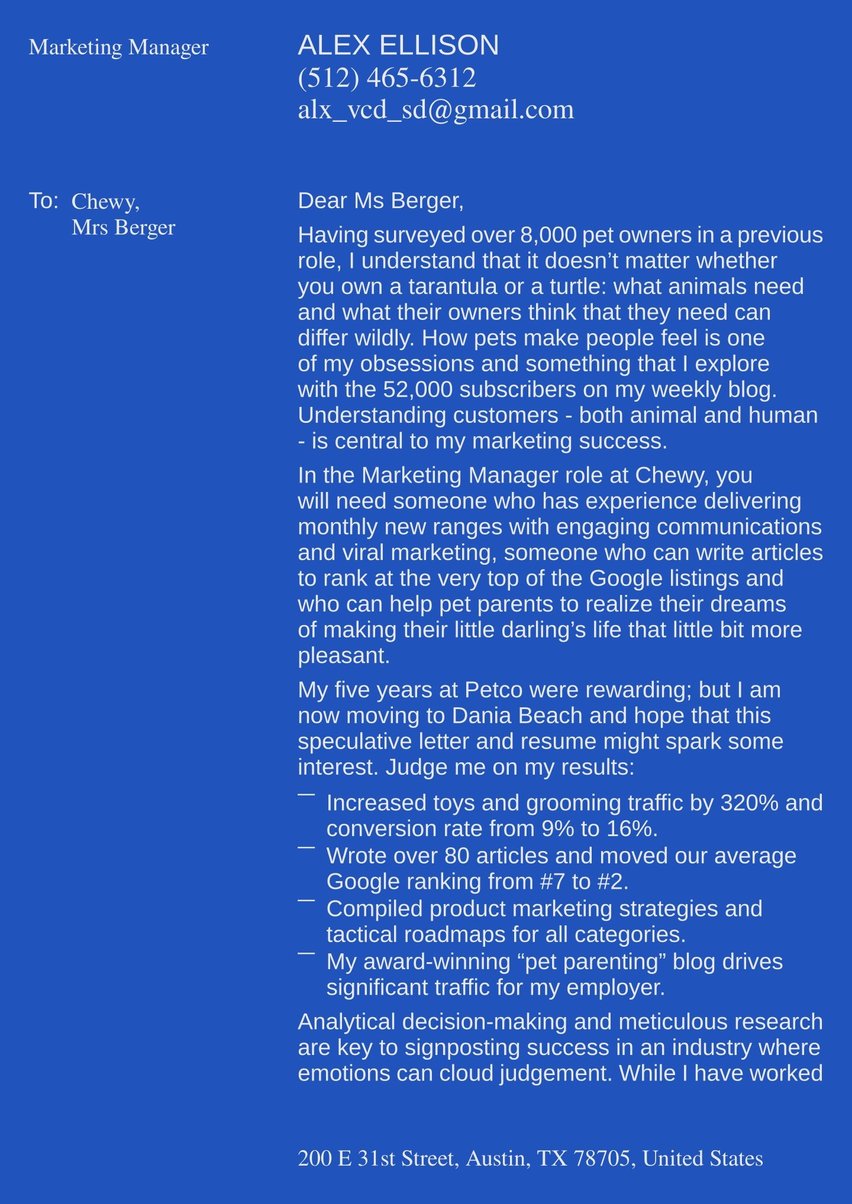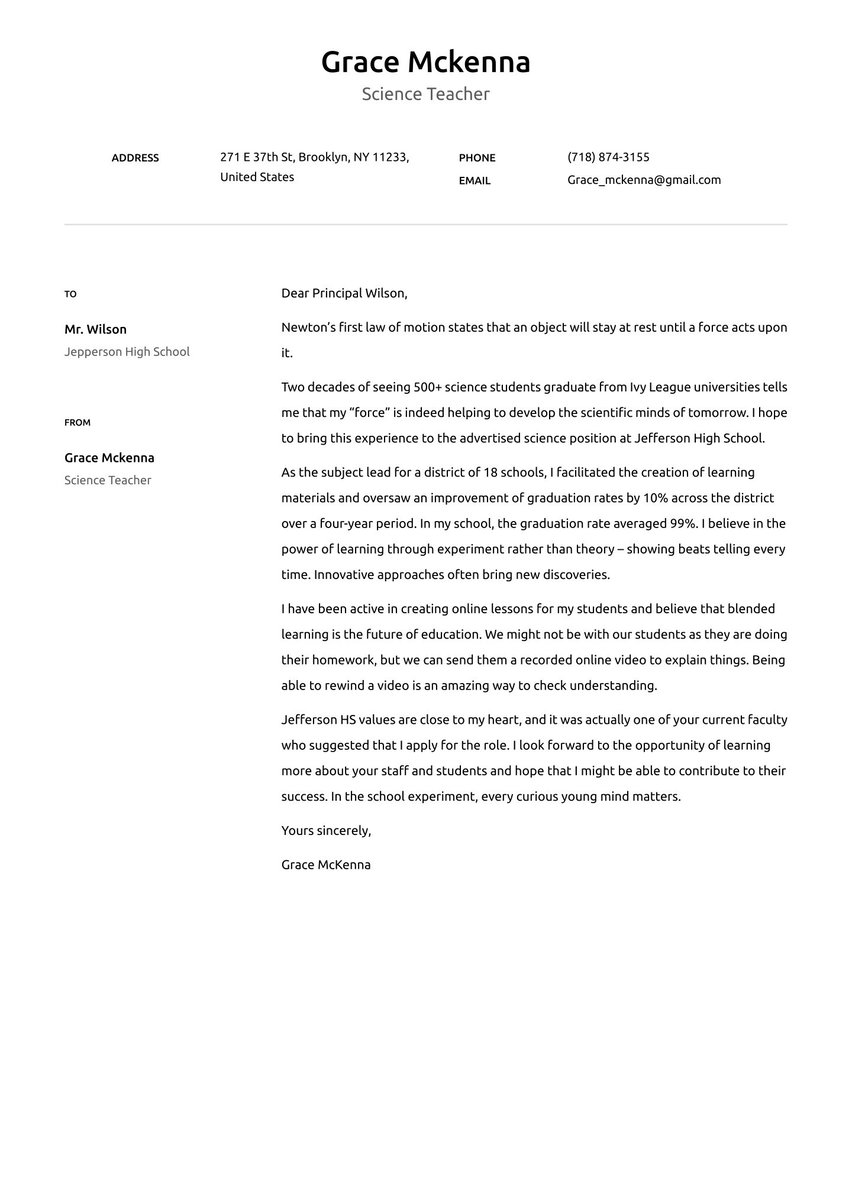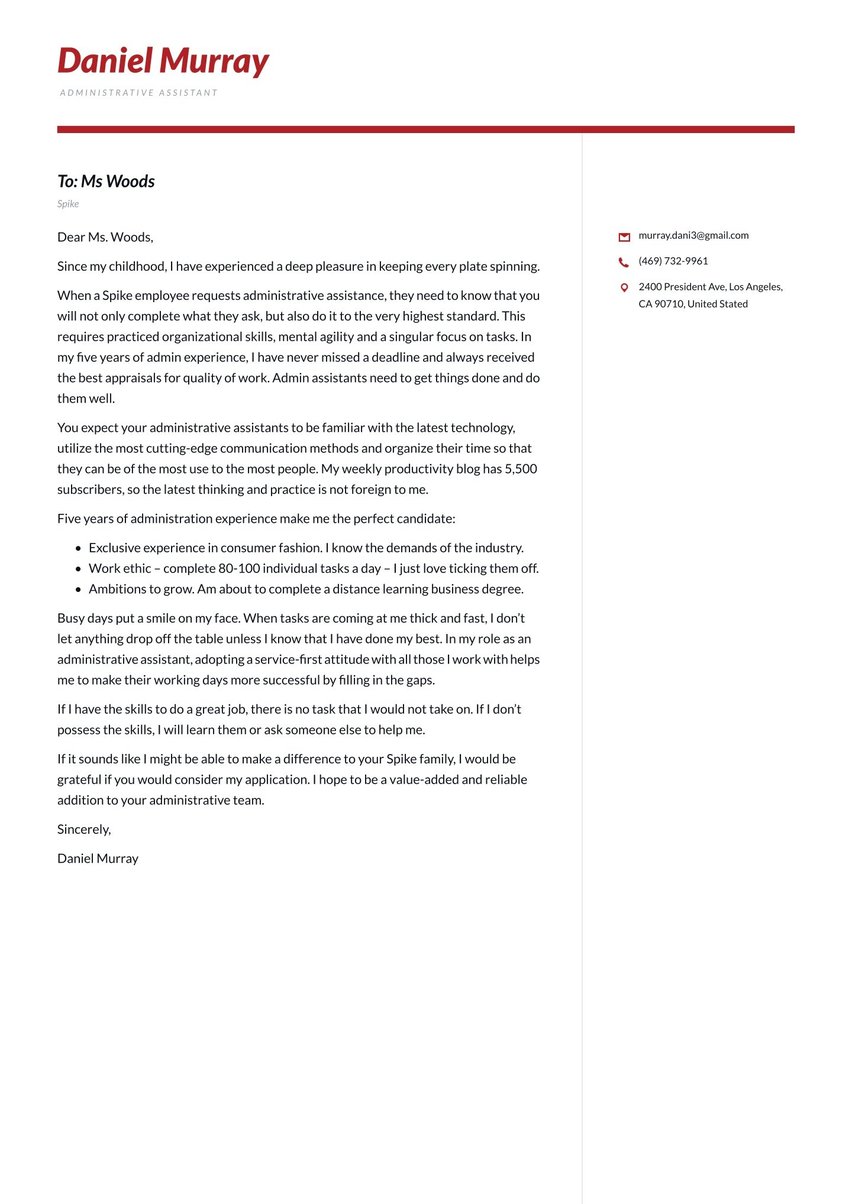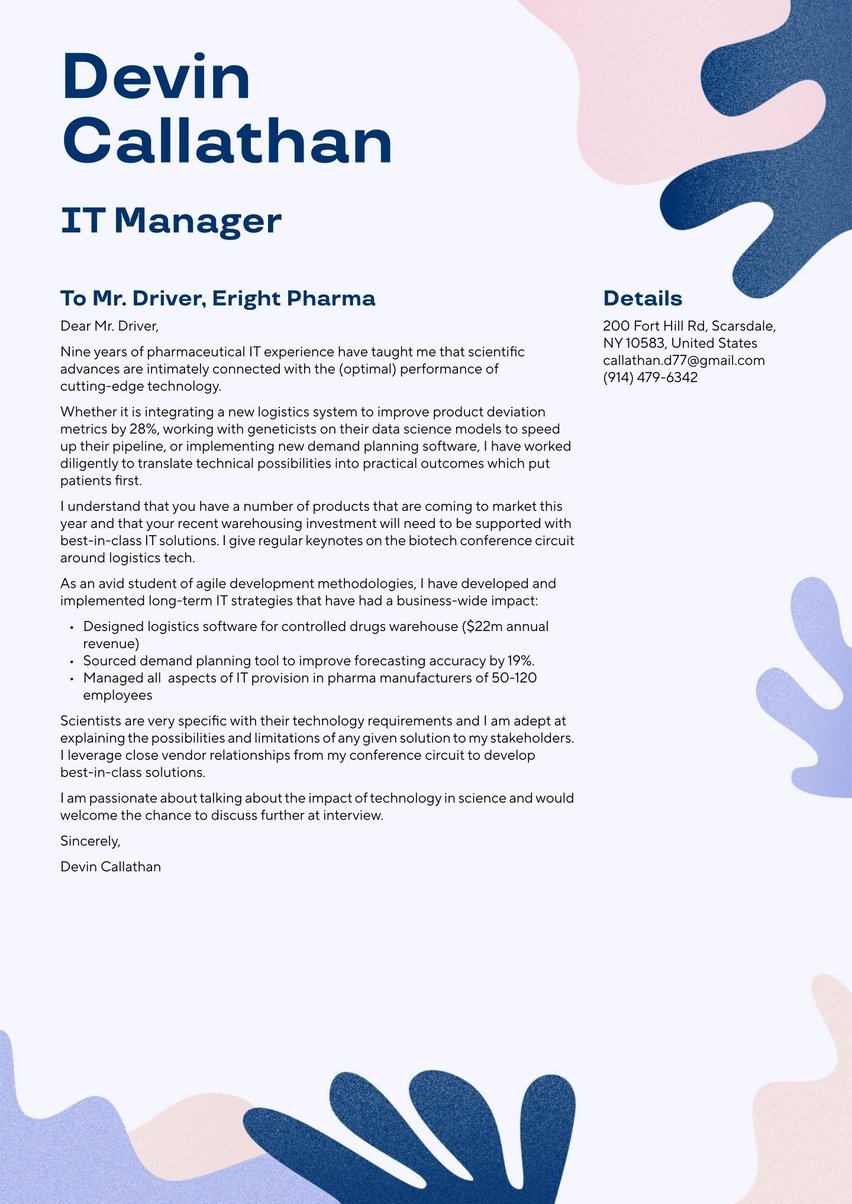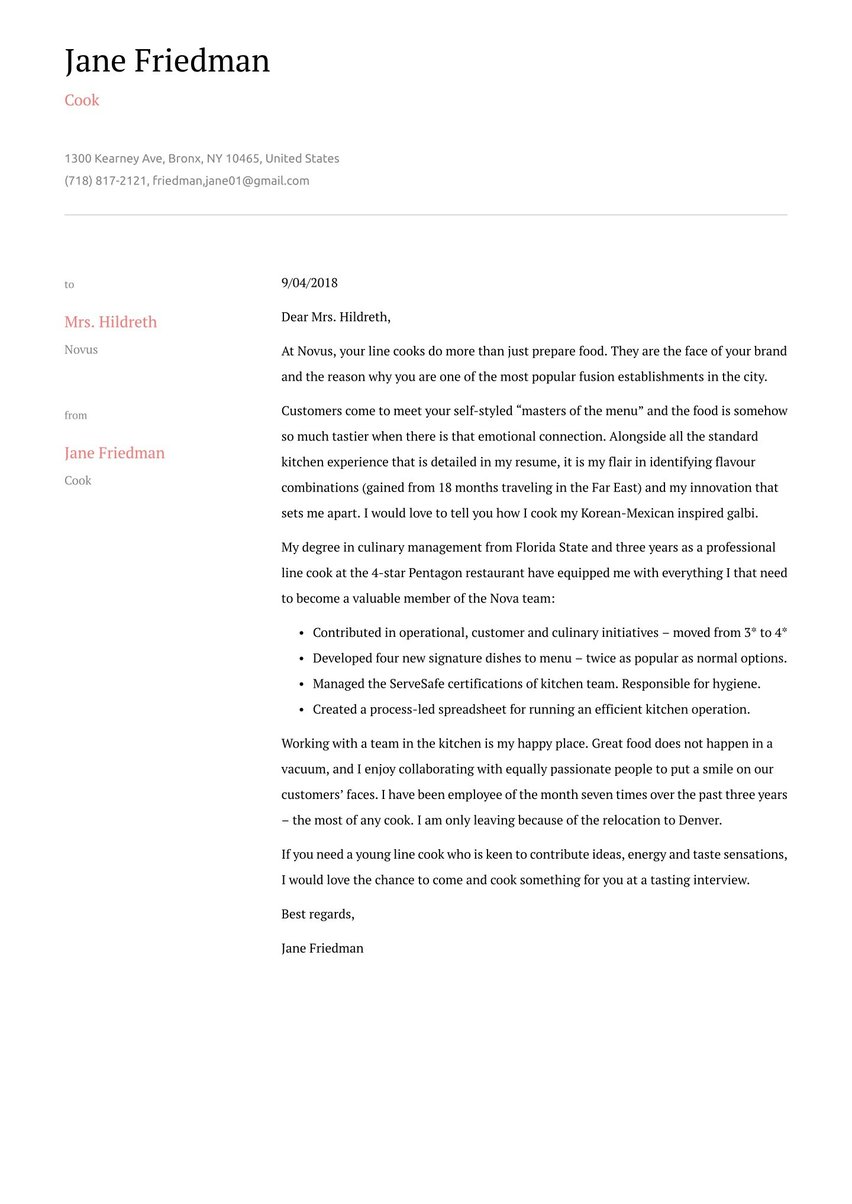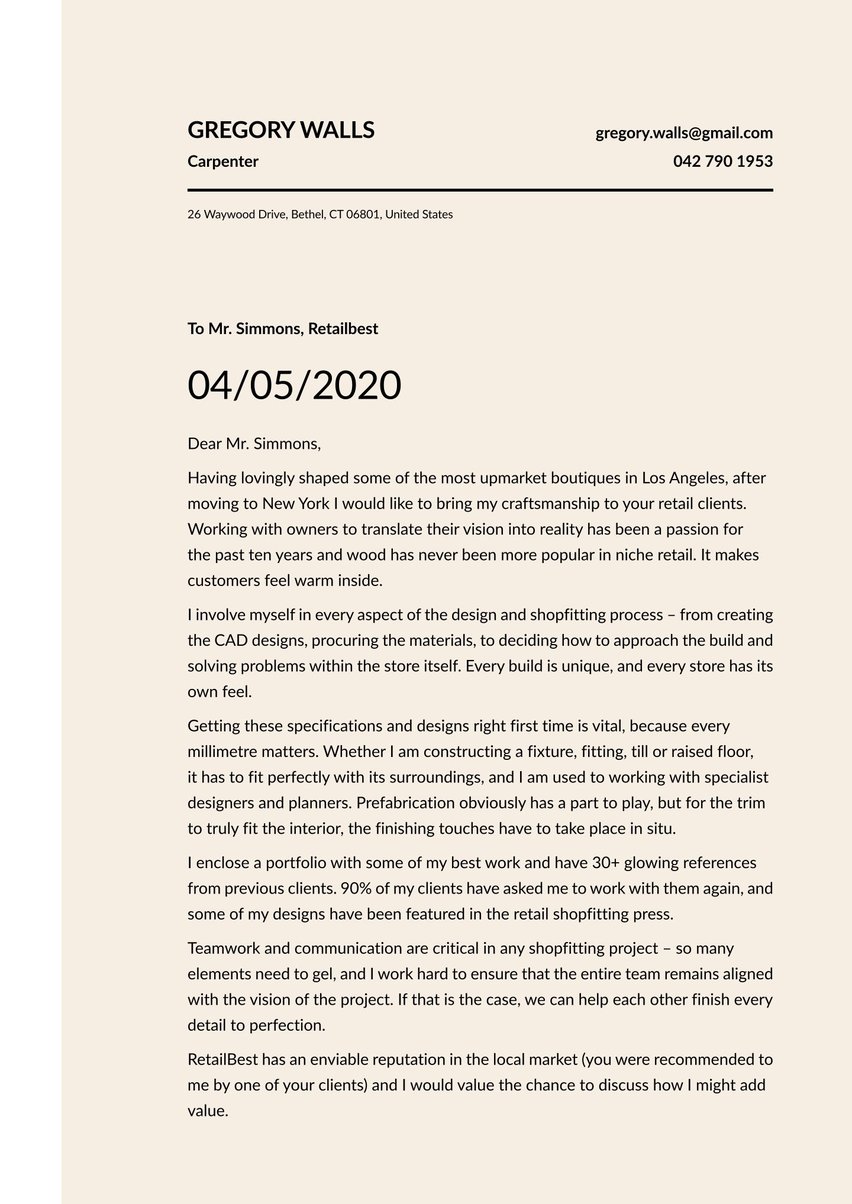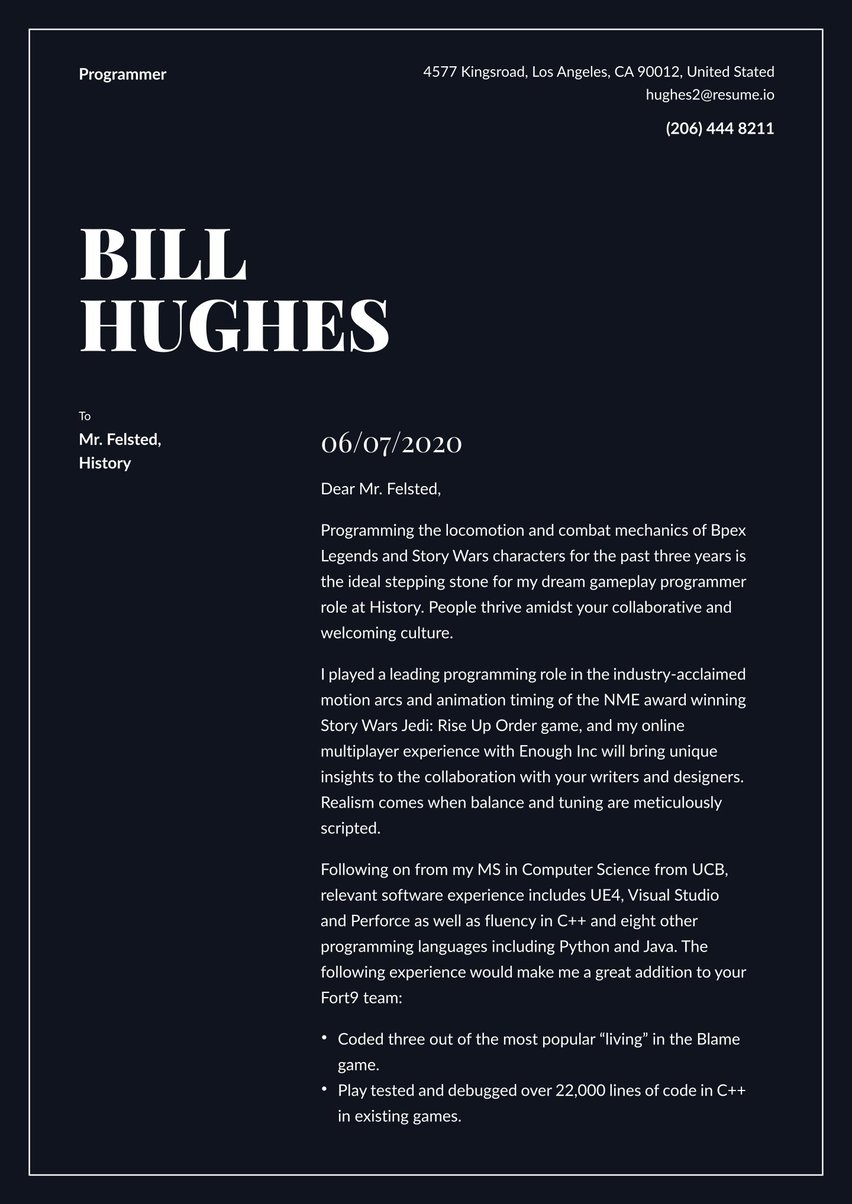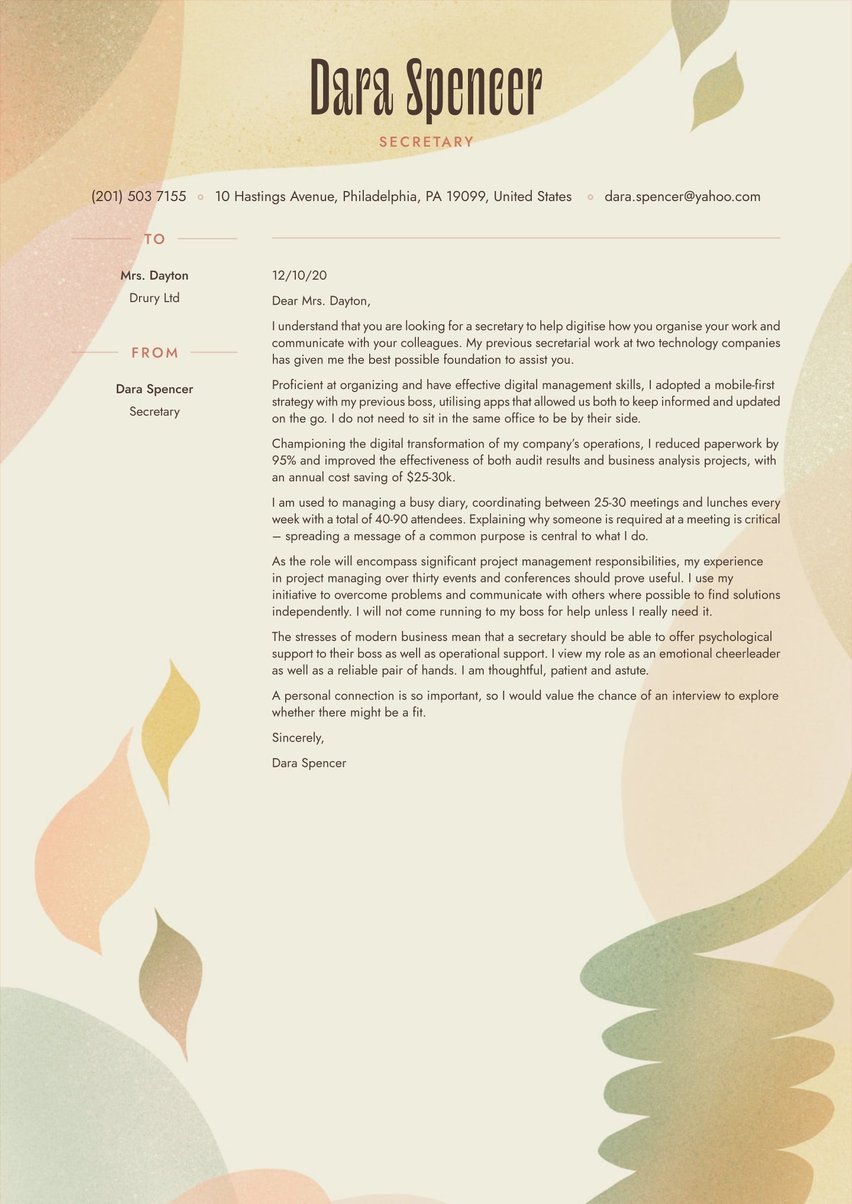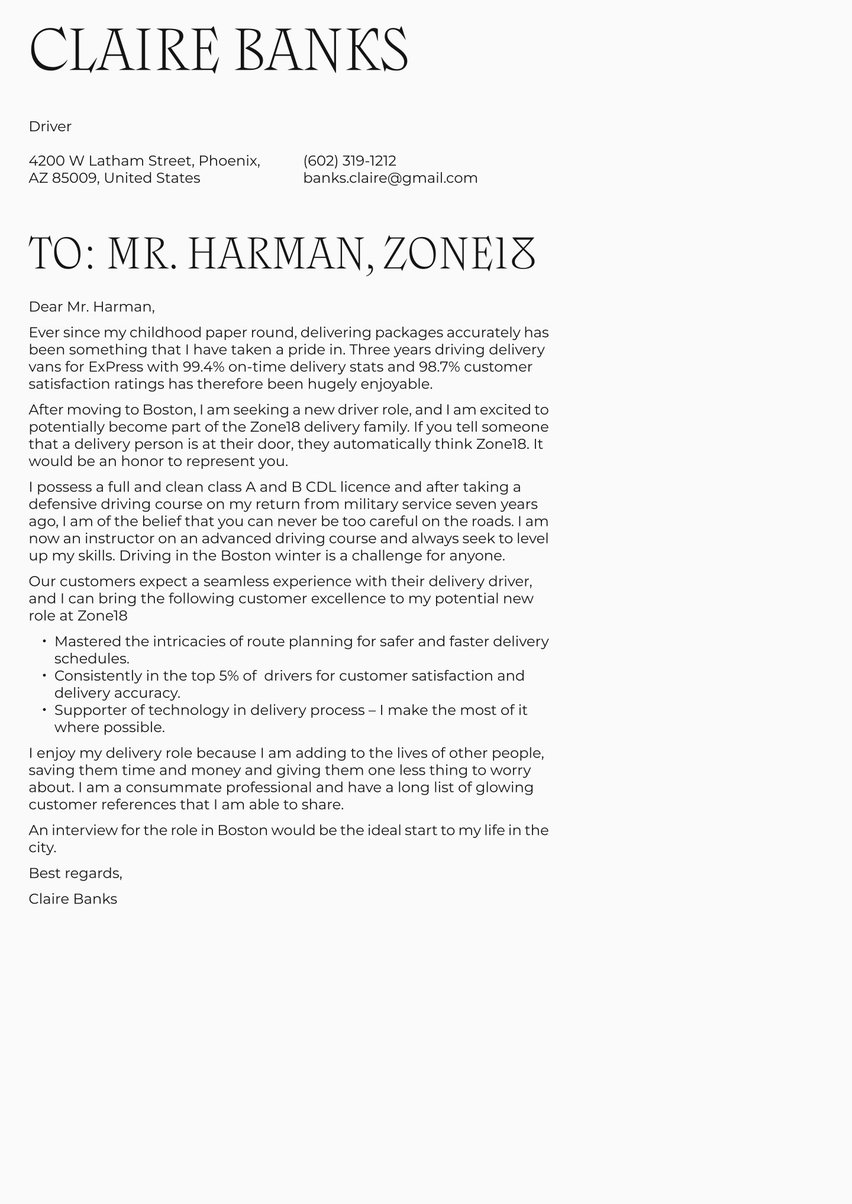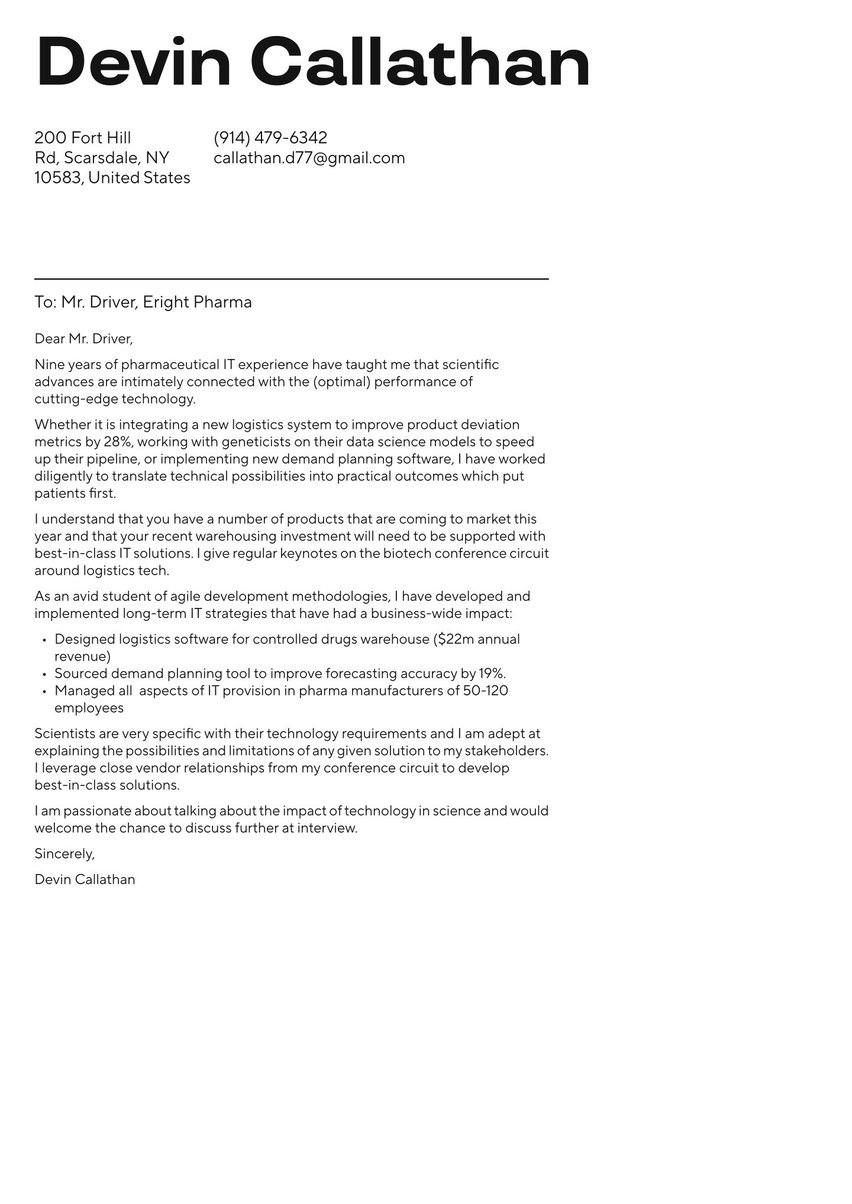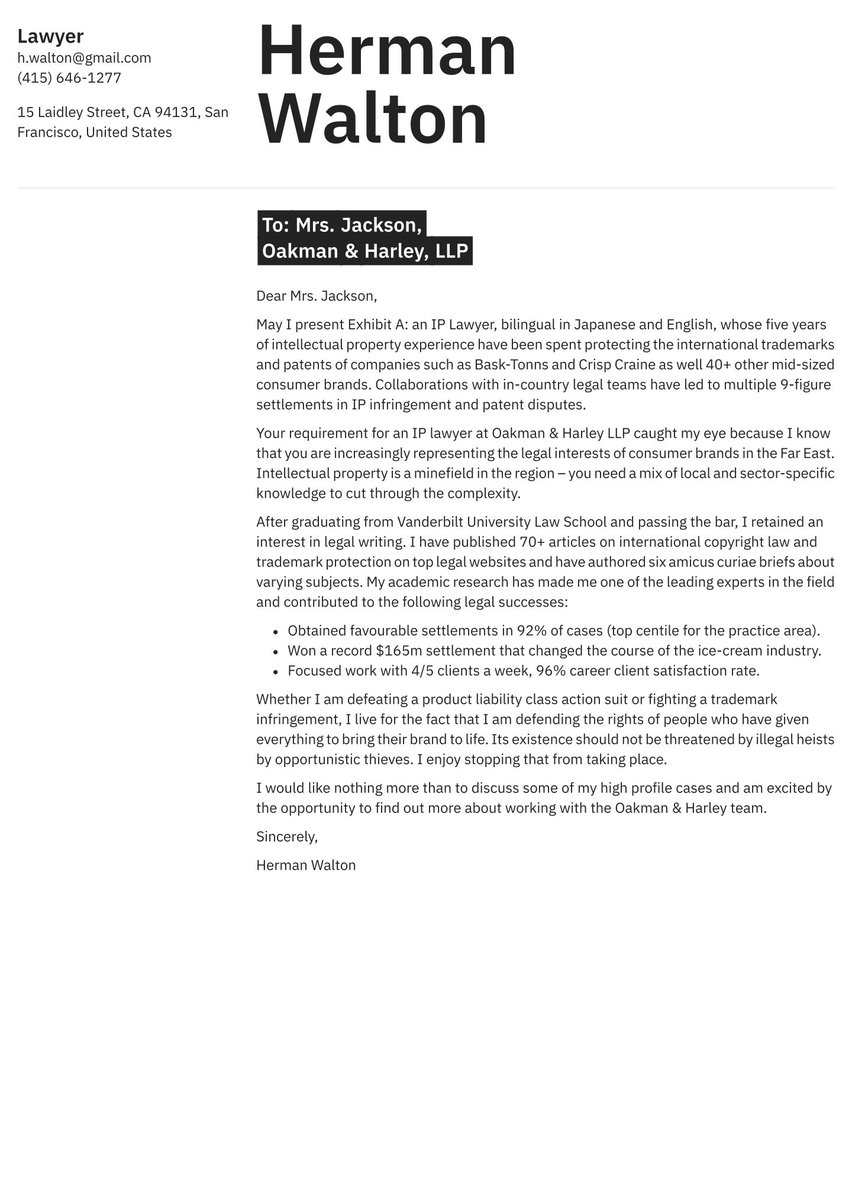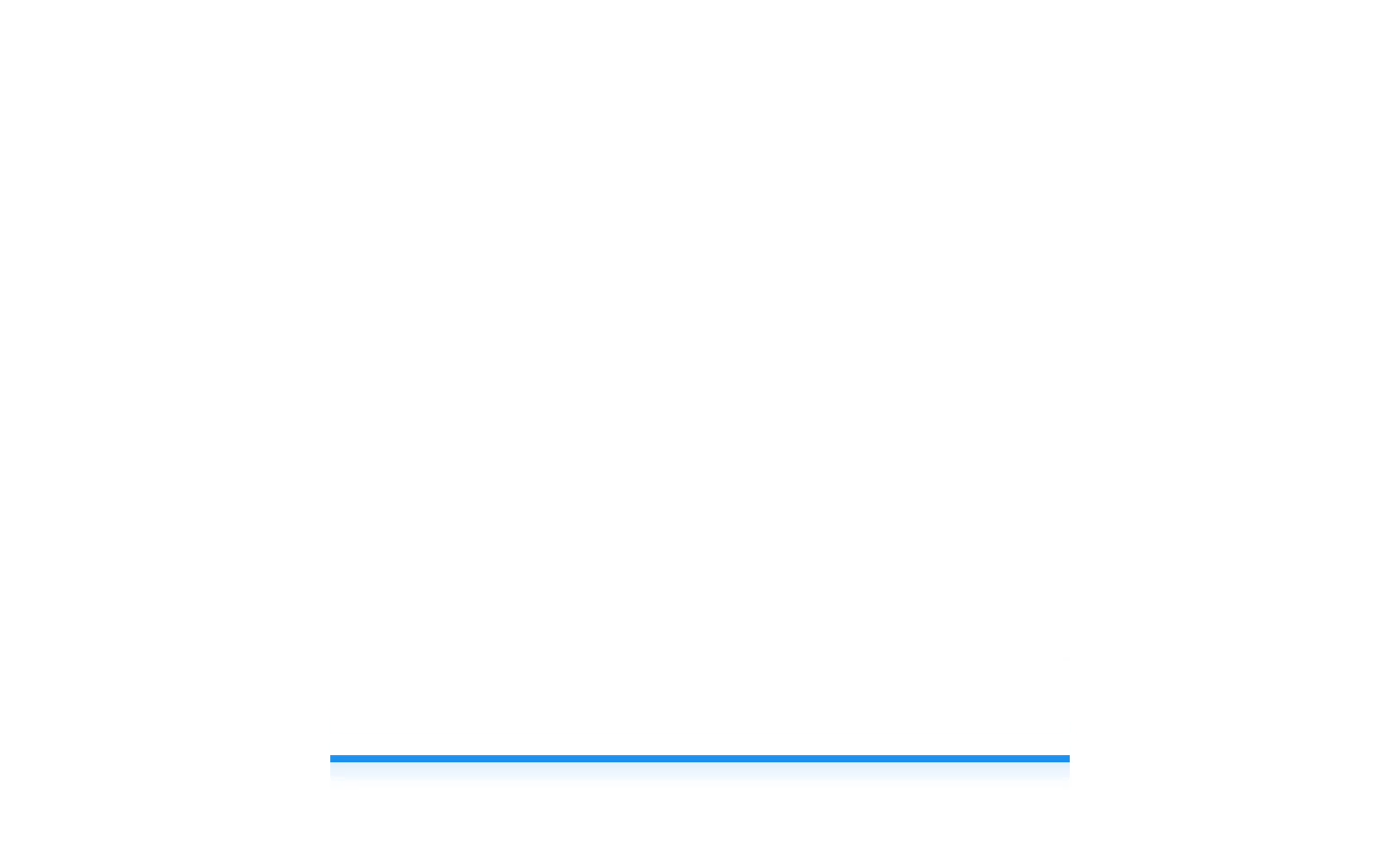You know how to create any 3D model a customer wants, but an application letter requires a different set of drafting skills. You have a great portfolio, do you even need a drafter cover letter? Yes! A letter gives you the opportunity to convey your work style and values.
Drafters use their creativity and technical skills to bring to life the ideas and plans of architects, product designers, and electrical and waste management engineers. Anywhere a 3D model is needed, computer-aided design (CAD) drafters can be found.
Your cover letter affords you the opportunity to target the industry for which you are applying and to supplement both your drafter CV and your portfolio. This guide and the accompanying drafter cover letter example present information that will help you enhance your application and earn that interview. The topics below include
- The sections that combine to create your cover letter format
- Tips for writing each paragraph and the content it should include
- How to aim your cover letter at each employer by using the correct tone and examples
- Common cover letter errors and ways to avoid them.
The overarching point of your cover letter is to gain the attention of the hiring manager and prove you’re an excellent candidate. In addition to this guide, we also have a library with 180+ cover letter examples to inspire you.
Best format for a drafter cover letter
The format of every cover letter contains common elements. The drafter cover letter should comprise the following sections:
- Cover letter header
- Greeting/salutation
- Introduction
- Body of the letter
- Conclusion
This broad outline allows you to enumerate your achievements in detail while providing a way to demonstrate how you balance your creativity and technical know-how.
Do you really need a cover letter?
Some studies suggest that many cover letters go unread. That may be the case; however, you can’t go wrong by going the extra mile. You can only lose by excluding a cover letter from your application, but you can definitely gain if you do include one.
Of course, you must write one if your prospective employer asks for one. This may be a first step toward eliminating those applicants who don’t follow directions.
A cover letter also gives you the opportunity to explain a gap in employment or why you are a great fit despite the fact that you are changing careers.
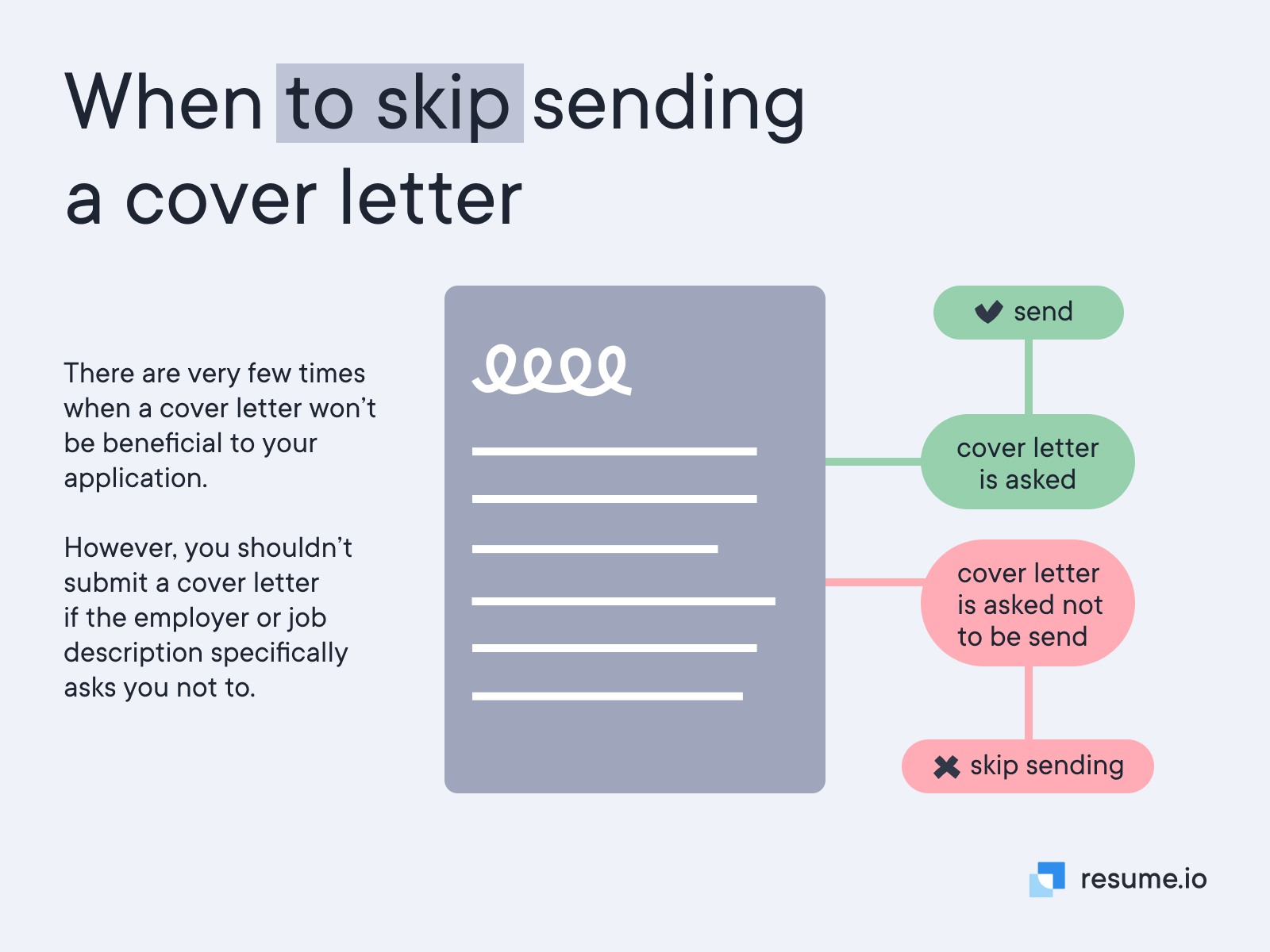
Use this drafter cover letter example to help you write your own:
Dear Mr. Hallwick,
Having worked in aerospace for seven years as an engineer and the past four as a drafter, I hope to join DesignFlight at a critical time. You need a drafter who can appreciate the technical nuances of your engineering decisions.
My mixed background allows me to picture the real-life applications of my schematics and renderings. Discussing installation drawings is a lot easier when you have an idea of the mechanics. My projects underwent 25% fewer revisions because I was able to involve colleagues on a technical level at an earlier stage.
I enjoy the buzz of working with a team to work out project requirements, prepare draft layouts and scope the manufacturing requirements. My work in the design of the revamped fuselage for the J11 booster was praised in over 30 industry publications as “a step-change for aerospace design.” The time to manufacture on this project was 35% below the plan.
Striving for a high level of accuracy in my work enables precise estimation of the eventual cost. My average project at NiDesign was 12% under budget and I won a company award for my impact on the forecasting process. Poor designs create waste and delay.
I am proficient with the latest Autodesk CAD software, as well as SmartDraw and DraftSight. My knowledge of industry codes and regulations is extensive, and I am constantly educating myself on the shifting demands of regulation. Our industry does not stand still.
I look forward to the opportunity of an interview to find out more about your plans and how you work with your drafting team. I feel that my unique mix of operational and design experience will bring a new dimension to your projects.
Sincerely,
Tre Youthson
Cover letter header
This is your place to shine. The header of your drafter cover letter is a canvas for you to show off your design abilities. In fact, it is the only spot on this document to display your visual arts skills, but it has a more important goal: to place your contact information front and center.
To that end, you need to consider legibility over creativity. Your name, title, and best phone and email contact information take precedence over intricate graphics. Because drafting is a visual profession, you may consider using a small image to distinguish yourself.
Additions to your header
If you have a strong portfolio, social media presence, or excellent LinkedIn referrals, you may add a link to them into your header. Be sure that you integrate the link into the design so it does not appear to be an afterthought.
The aim of the cover letter header: Put your contact information on display and attract the attention of recruiters.
Cover letter greeting
When you meet a person, it's preferable to greet them by name. This personal touch begins the encounter warmly and with positive feelings toward the person you are greeting. Apply this same principle to the salutation of your drafter cover letter.
Unless you are 100 percent certain that the company is very casual, err on the side of formality. Begin your letter with “Dear Mr./Mrs./Ms./Dr. Last Name.” One caveat: Be sure you know you are using the correct title and triple-check the spelling of the person’s name. Your best effort will go quickly to waste if you make an error here.
Avoid using the stale “To Whom It May Concern” and opt for “Dear Human Resources Department” or a similar greeting if you absolutely cannot find a person’s name.
A little research goes a long way
If the name of the contact person is not named in the job advertisement, don’t be thwarted. Here are a few methods of sleuthing out the correct person to address:
- Investigate the company website
- Check on LinkedIn
- If you have been referred to the position, ask the person who referred you
- Call the company and ask.
The goal of the greeting/salutation: Open your letter with a professional tone and create a connection with the hiring manager.
Cover letter introduction
You have politely but warmly addressed your contact. The next step in your drafter cover letter is introducing yourself in a manner that captures attention. Why should your audience keep reading? Because your career summary demonstrates that you are an excellent candidate for the drafting job they have open.
Maintain the professional tone you adopted for your greeting as you dive right into your case for employment by providing a one-sentence overview of your career. Then, highlight an achievement that shows you have the experience to move smoothly into this new role. Recruiters want to present safe choices to hiring managers, so prove that you have been performing similar tasks to the ones your prospective employer needs.
Your resume offers an overview, but in your introduction you will begin to build a more in-depth case. Hint at the message to come so your reader will move on to the next paragraph.
The goal of this section: Offer a summary of the case you will make for employment and leave the reader wanting more.
Dear Mr. Hallwick,
Having worked in aerospace for seven years as an engineer and the past four as a drafter, I hope to join DesignFlight at a critical time. You need a drafter who can appreciate the technical nuances of your engineering decisions.
Cover letter middle part (body)
The middle part, or body, of your drafter cover letter is a platform upon which to back up the assertions you made in your introduction. You have three short paragraphs to sustain the hiring manager’s interest and cement an interview.
Start out by describing a success you had that demonstrates skills you will need in the job to which you aspire. Offer details such as the timeframe, the challenges you faced and how you overcame them, and the results you achieved.
In the second paragraph of your drafter application letter, use bulleted items to highlight other important accomplishments – also making sure they directly relate to the skills named in the job listing. This serves to make the reading easier for HR personnel who are scanning dozens of applications but also to break up larger blocks of type.
If you have space, add a third paragraph here that explains your design philosophy, details the types of designs you have modeled, or what attracted you to this particular job.
The goal of the middle paragraphs: Maintain your tone and supply evidence that bolsters your case for employment.
Below is the middle part of our cover letter sample.
My mixed background allows me to picture the real-life applications of my schematics and renderings. Discussing installation drawings is a lot easier when you have an idea of the mechanics. My projects underwent 25% fewer revisions because I was able to involve colleagues on a technical level at an earlier stage.
I enjoy the buzz of working with a team to work out project requirements, prepare draft layouts and scope the manufacturing requirements. My work in the design of the revamped fuselage for the J11 booster was praised in over 30 industry publications as “a step-change for aerospace design.” The time to manufacture on this project was 35% below the plan.
Striving for a high level of accuracy in my work enables precise estimation of the eventual cost. My average project at NiDesign was 12% under budget and I won a company award for my impact on the forecasting process. Poor designs create waste and delay.
I am proficient with the latest Autodesk CAD software, as well as SmartDraw and DraftSight. My knowledge of industry codes and regulations is extensive, and I am constantly educating myself on the shifting demands of regulation. Our industry does not stand still.
How to close a cover letter (conclusion and sign-off)
The reader has made it to the end of your drafter cover letter, which means they are still interested. Attention spans, especially of those whose goal is to fill the open position quickly, are short. That means you must restate your case before you sign off.
The conclusion of your cover letter also contains two other elements: A “hook” that leaves the reader wanting more information and a call to action, or request for an interview. Keep your tone confident, but don’t step over the line into arrogance. For instance, avoid making the assumption that you will get the interview. Instead, aim for something like “I look forward to the opportunity to discuss this position with you further.”
Leave them wanting more
Here are some ideas for a hook that you can elaborate on in an interview:
- A hobby that uses your design or technological skills
- An interest that you noticed was mentioned in your contact person’s bio – another reason to do your research
- A connection you have to the company
The aim of the conclusion of your cover letter: Remind the recruiter why you are an excellent candidate and politely request an interview.
Below is the conclusion from our cover letter sample.
I look forward to the opportunity of an interview to find out more about your plans and how you work with your drafting team. I feel that my unique mix of operational and design experience will bring a new dimension to your projects.
Sincerely,
Tre Youthson
How to avoid basic mistakes in an application letter
If the hiring manager is reading your document, you can be assured that your resume looks promising to them. Your drafter cover letter can make the difference between landing the interview or getting that “thank you for your interest; we’ll keep your application on file” email.
Avoiding these common basic mistakes will ensure that you give yourself the best shot at the jobs:
- Tone that doesn’t match the company culture: If you want to work at a stiff-upper-lip firm, going casual will land with a thud. On the other hand, startups are probably looking for someone with a much lighter demeanor.
- Generic letters: A cut-and-paste job in which you change only the name of the company probably won’t do the trick. Instead, consider your audience and make all adjustments necessary. Check to make sure not only your tone matches the job, but that the examples you use are relevant.
- Spelling and grammatical errors: This should go without saying, but little errors make a big impact. Use the tools at hand (such as the built-in spellcheck function in resume.io’s online cover letter builder) and proofread your work. It’s best to ask a trusted colleague or friend to proofread your letter as well.
Key takeaways
- All cover letters follow a standard outline: header, greeting, introduction, body, and conclusion or sign-off.
- Consider using a small graphic element in your header to show off your creativity.
- Personalize each of your drafter cover letters to give you the best chance of obtaining an interview.
- End your letter with a tidbit or anecdote that leaves your reader wanting to get to know you better.
Staring at a blank screen and trying to decide how to praise yourself can shake the most confident job applicant, but Resume.io’s tools and resources ease the task. Using the tips and tricks you learned in this guide, you may simply click on one of our ready-made and carefully market-researched cover letter templates and start writing.
If you need more inspiration, click over to our related cover letter examples:


